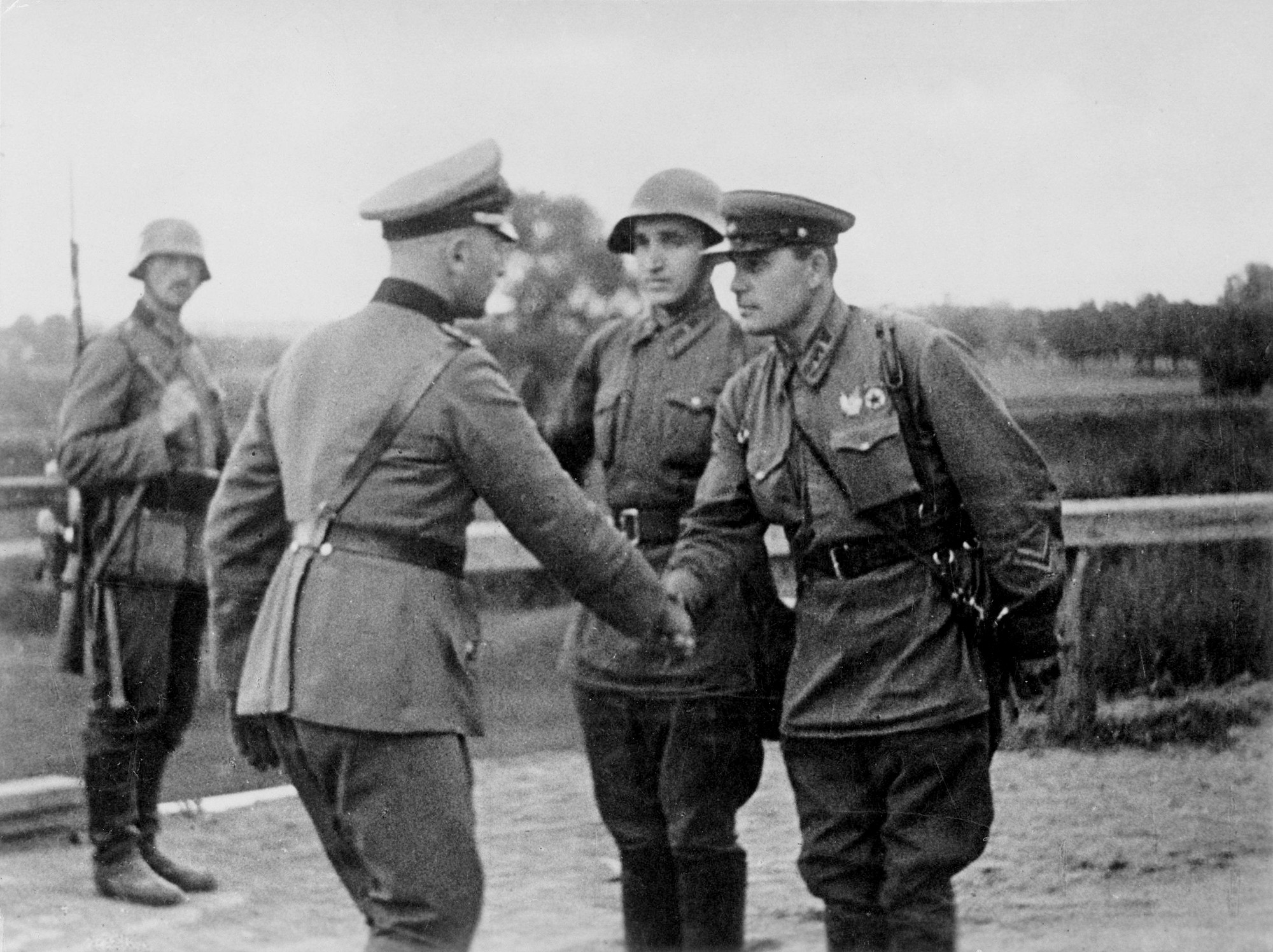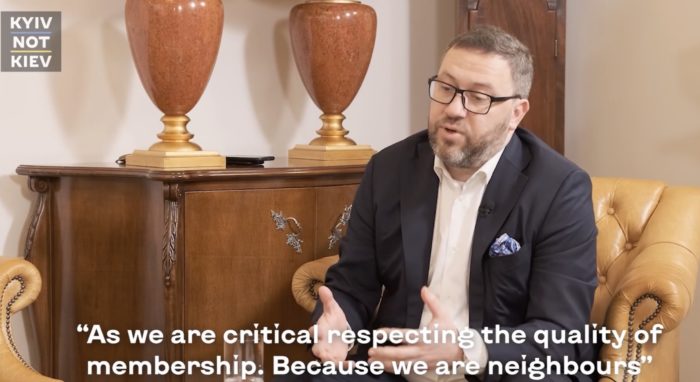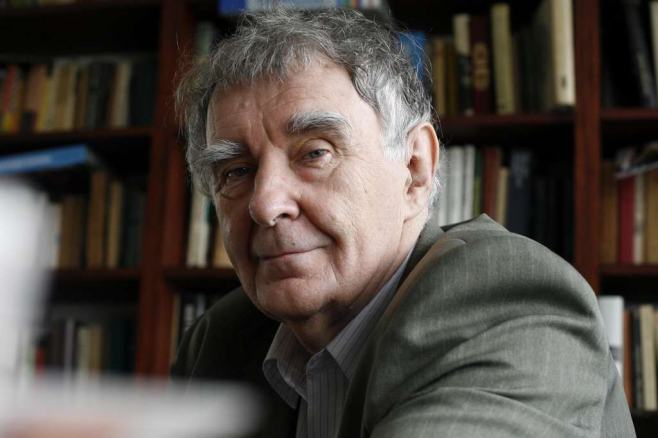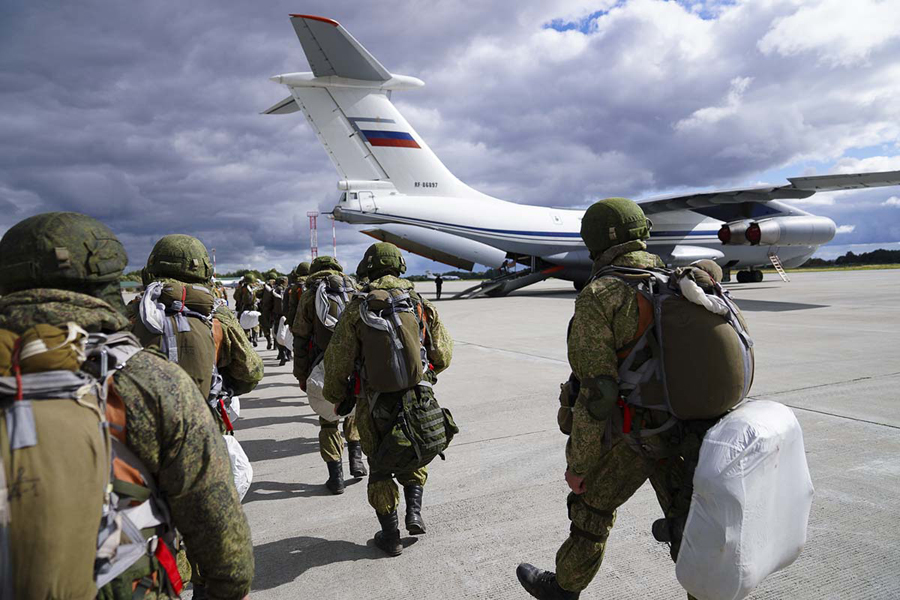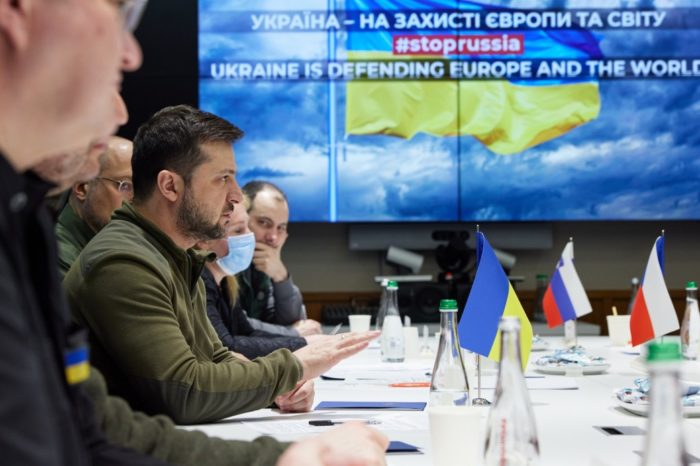The Russian Federation is not only the legal successor of the USSR. It also inherited its expansionist politics, hiding behind statements of peace and assistance to fraternal nations. In this sense, September 1939 and March 2014 have something in common.
1 September 1939, marks one of the most tragic pages in the history of humanity—Hitler’s troops entered Poland, starting what would become World War II.
One week earlier, on 23 August of that year, Berlin had enlisted Moscow’s support, which was absolutely critical. While history does not deal in conditionals, Hitler would have probably not dared to invade Poland without this support. The Molotov-Ribbentrop Pact gave him a carte blanche for aggression. Therefore, it is best to consider the events of 1 September together with what happened a week before them, as well as 16 days after them.

Soviet troops, who invaded Poland from the east on 17 September, accelerating its fall. They also ruined Britain and France’s game, since they had a commitment to protect Poland from a German attack.

In response to Hitler’s and Ribbentrop’s birthday wishes on 25 December 1939, now 60-year-old Stalin wrote,
“The friendship of the peoples of Germany and the Soviet Union, bound by blood, has every reason to be strong and lasting.”
Of course, the events in 2014 did not fully replicate all the intricacies of 1939, because the world had significantly changed since then. The world did, but not the Kremlin’s policies.
We have identified five main features of the Kremlin’s expansionist policy and its accompanying propaganda:
1. Division of the country
There was a proposal made at the level of State Duma on 18 March 2014, to divide Ukraine between Russia, Poland, Hungary, and Romania. It farcically copied the Molotov-Ribbentrop Pact.
2. Undeclared war
Russia did not declare war on Ukraine in 2014. In 1939, the USSR also did not declare war on Poland.
3. “Non-existent state”

The note handed to the Polish ambassador in Moscow in 1939 stated that “the Polish state and its government had virtually ceased to exist” and thus “the treaties concluded between the USSR and Poland had ceased to have force.” In 2014, Putin declared the agreements between Russia and Ukraine invalid on the grounds that the state with which the agreements had been concluded had allegedly ceased to exist as a result of a “coup.”
4. Protection of Fraternal Nations
Just as Berlin justified the aggression against Poland by the need to protect the Germans, Moscow declared the need to protect its “blood brothers”: “The Soviet government cannot turn a blind eye to our brothers, Ukrainian, and Belarusians who live on the Polish territory, abandoned and defenseless.”
Yet, as German Ambassador Schulenburg reported in his telegram of 16 September, Moscow had to hint at the threat faced by Ukrainians and Belarusians from the Germans, since “until now, the Soviet Union never cared about its minorities in Poland, so it had to justify its intervention abroad one way or another.”
Similar justifications were used when Moscow occupied Crimea in 2014, justifying its aggression by the need to protect the “Russian-speaking population.”
5. “Insidious West”
At the same time, the “unfortunate war” was blamed on the “foolish leaders” of Poland, as well as on… Britain and France. Stalin claimed it was they who had “attacked Germany” declaring war on it after Germany had invaded Poland.
Molotov went one step further, standing up to defend Hitler’s ideology:
“Hitlerism, like any other ideological system, can be recognized or denied—it is a matter of political beliefs. But anyone can understand that ideology cannot be conquered by force, it cannot be ended by war. It is therefore not only meaningless, but also criminal to wage a war like the war to ‘destroy Hitlerism’ under the pretend banner of a fight for democracy.”
At the same time, the People’s Commissar for Foreign Affairs of the USSR boasted about how quickly German and Soviet troops handled Poland together:
“It proved enough to strike Poland first from the German side, and then from the Red Army to destroy this ugly offspring of the Treaty of Versailles… Neither English nor French guarantees were able to help Poland. It is actually still unclear what those ‘guarantees’ were in the first place.” (Laughter)
This is reminiscent of numerous allegations by Russian propaganda that “the West has started war in Ukraine,” combined with ridicule of the West’s alleged reluctance and inability to help Ukraine.
To Be Continued
History also shows that depending on the circumstances and its personal interests, the Kremlin can easily do a U-turn on its propaganda. And it can hardly be expected to stop.
A striking example is the attempts to alternatively hide, condemn, or justify Stalin’s cooperation with Hitler.
Soon after Poland was taken over by Wehrmacht troops from the West in 1939, its eastern regions were occupied and annexed by the Red Army. The division of Poland became part of the secret supplementary protocol to the Molotov-Ribbentrop Pact—The German-Soviet Boundary and Friendship Treaty.
Moscow denied its existence for many years, calling it a fake. The existence of agreements on the division of Eastern Europe between the two dictators completely undermined the official Soviet version about the “peaceful” Stalin who tried to delay the war.
Only in December 1989 did a special commission, and then the Congress of People’s Deputies of the USSR, recognize the existence of the protocol. It was officially condemned.
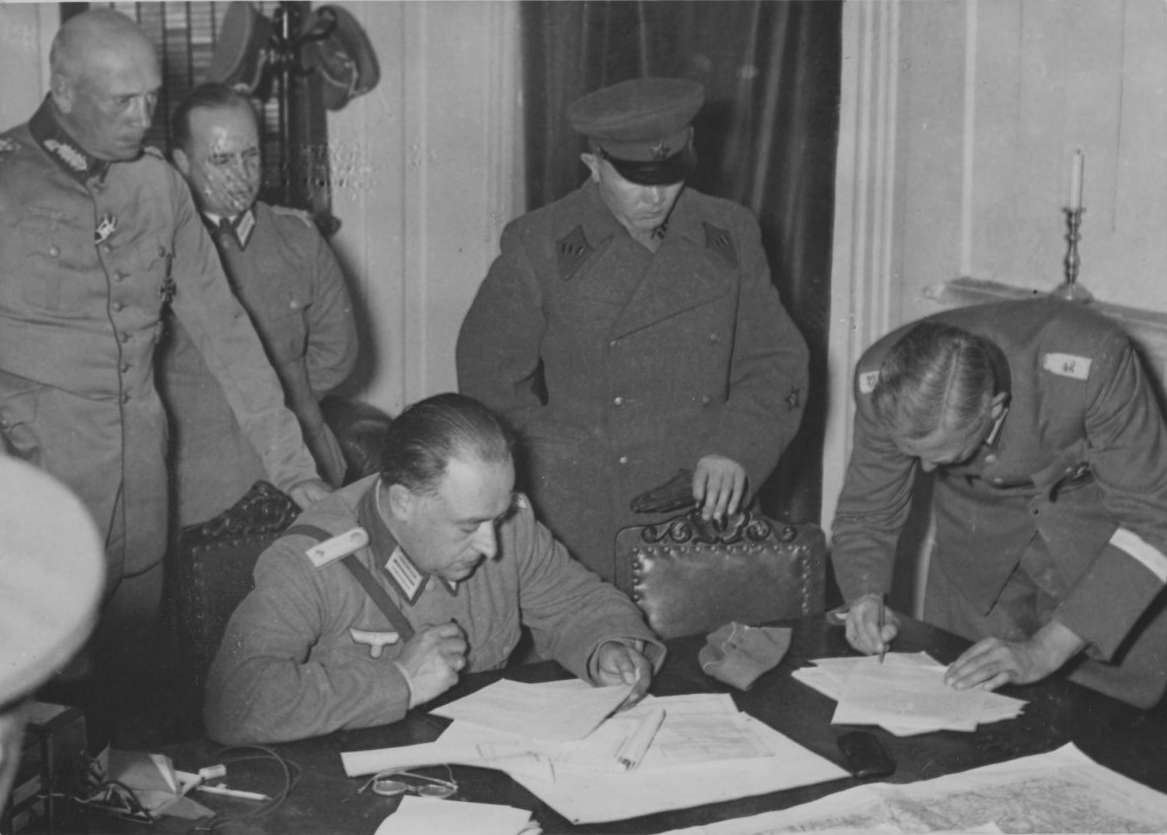
Things rapidly changed after the occupation of Crimea, though. In November 2014, Putin was already saying that there was nothing wrong with the pact, and Poland had been to blame. In 2019, Russian minister of culture at the time, Vladimir Medinsky, called the pact “a triumph of Soviet diplomacy.”
In May 2020, a bill was introduced in the State Duma to annul the document condemning the Molotov-Ribbentrop Pact in the USSR. The Kremlin is starting a new cycle.
Further reading:
- Russia’s “ping pong” policy on Molotov-Ribbentrop Pact
- Stalin’s NKVD and Hitler’s Gestapo cooperated closely even before Molotov-Ribbentrop Pact
- Five lessons for today from the 1939 Molotov-Ribbentrop Pact
- The real reason the Kremlin will never completely disown the Molotov-Ribbentrop Pact
- Munich and the Molotov-Ribbentrop pact revisited, Part 1: The interwar prelude
- Munich and the Molotov-Ribbentrop pact revisited, Part 2: Hitler’s Anschluss
- Munich and the Molotov-Ribbentrop pact revisited, Part 3: The way to European catastrophe




